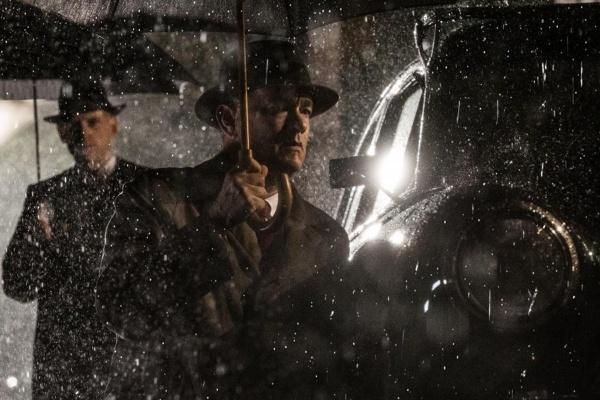Steven Spielberg’s “Bridge of Spies” Tells Story of a Fordham Alumnus
November 5, 2015
On Oct. 16, Director Steven Spielberg’s latest film, “Bridge of Spies,” was released, grossing $32.6 million in North America during its opening weekend and garnering glowing reviews from film critics.
Set in 1957 during Eisenhower’s presidency in the middle of the Cold War, this period drama focuses on a famous spy swap directed by James B. Donovan, a renowned lawyer and Fordham College at Rose Hill (FCRC) alum, who graduated with a degree in English in 1937, prior to earning a bachelors in law from Harvard University in 1940.
The film opens in Brooklyn with the capture of Rudolf Abel, a Russian spy who is ultimately detained by the FBI for his involvement with the Soviet Union. According to Peter Travers’ Rolling Stone review, “[Abel’s] capture, excitingly staged by Spielberg, starts the movie on a high.”
Donovan, an insurance lawyer by default, is unexpectedly given the task of defending Abel in trial. While his attempts to acquit Abel are unsuccessful, Donovan saves him from the death penalty by claiming that the British-born spy’s unique position may make him a valuable government asset in the future.
“This film is an important insight from the American point of view on the Cold War and what Americans in other countries were dealing with at the time,” Avery Bart, a communication and media studies major with a concentration in film at Fordham College at Lincoln Center (FCLC) ‘16, said. “Steven Spielberg has a habit of dealing with important historical events, the Cold War being one of them, [although] World War II is what he’s most famous for.”
In the process of appealing Abel’s case to the Supreme Court, two U.S. citizens are arrested in both the Soviet Union and East Berlin—Francis Gary Powers, an American CIA pilot, and Frederic Pryor, an American economics graduate student. The U.S.S.R. eventually proposes to exchange Powers for Abel. Complications arise when Donovan refuses to do the exchange unless he is able to successfully negotiate with East Berlin as well.
“Bridge of Spies” is definitely reminiscent of Spielberg’s more serious work, focusing in on historical events as opposed to blockbuster franchises. It is a clear departure from the two films he released earlier this year, “Jurassic World” and “Poltergeist,” respectively.
“There are really two Spielberg’s,” Albert Auster, professor of communication and media studies at FCLC, said. “One is Spielberg the entertainer, the director of things like ‘Jaws,’ ‘Indiana Jones’ and ‘Jurassic Park.’ And then there’s the other Spielberg, who’s much more serious and interested in history and the outcomes of history.”
Donovan’s Fordham education is apparent. He certainly “sets the world on fire”—excuse the pun—in the United States, when the public is incredibly angry with the court’s decision to overrule Abel’s death penalty. Even while receiving numerous death threats and hate mail, Donovan exhibits a great deal of bravery by refusing to comply with demands of the U.S. government, which believes that negotiating for Pryor’s release may compromise that of Powers’.
Donovan’s ability to successfully bargain with both East Berlin and the Soviet Union, ultimately making a two-for-one deal and arguably the greatest spy swap in American history, is a testament to both his intelligence and desire to do the right thing. Morality, a characteristic that Fordham tries to instill in its students, is evident in Donovan’s decision to risk his own life for the safety of his fellow Americans imprisoned overseas.
Although the film is incredibly written and directed, the talented cast is what brings “Bridge of Spies” to life. Tom Hanks, who last worked with Spielberg on “Saving Private Ryan” in 1998, may as well be considered an honorary Ram—just weeks after finding a Fordham student’s ID in Central Park, Hanks is also playing the role of Fordham alum Donovan. Mark Rylance’s performance as Rudolf Abel has also been praised.
Ultimately, “Bridge of Spies” is a must-see film, particularly for Fordham students. “He’s an alumnus who actually affected the world,” Bart said. “ [Donovan] actually made things happen. He affected change, he affected the course of history.”










